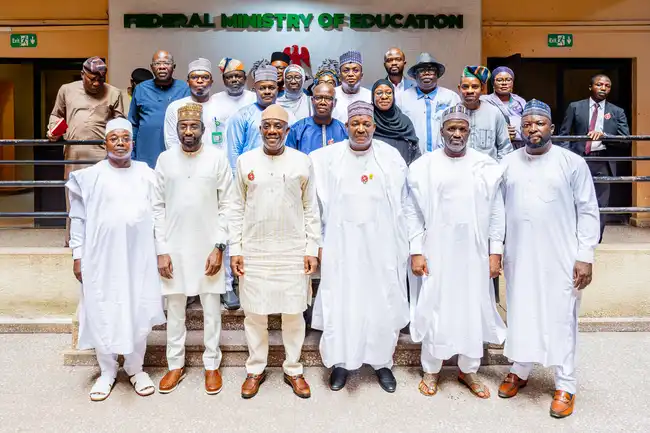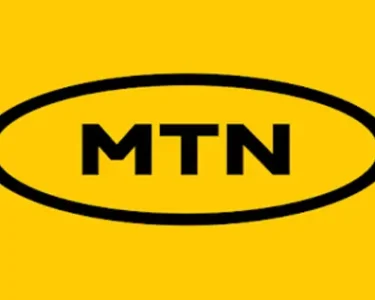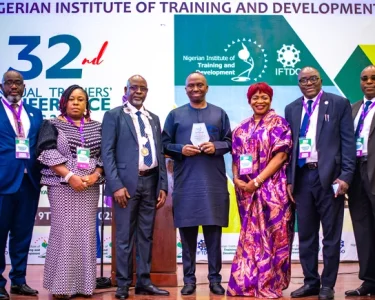There is an multiple sector partnership in Nigeria driven by information technology company, CISCO, National Board for Technical Education (NBTE), National Universities Commission (NUC), National Teachers’ Institute (NTI), National Mathematical Centre (NMC), and the Universal Basic Education Board (UBEC) to creating an inclusive and technology-driven educational ecosystem.
This initiative seeks to embed digital literacy across all levels of education in Nigeria, starting from the foundational stages in kindergarten through to secondary schools and tertiary institutions, in order to achieve short-term target of 70% and long-term target of 95% digital literacy by the year 2030.
Their combined expertise and resources will provide a robust framework for implementing the partnership’s goals. From introducing cutting-edge technology in schools to fostering a culture of innovation, the collaboration is poised to redefine what education means in Nigeria.
According to the Director-General of the National Information Technology Development Agency (NITDA), Mr Kashifu Inuwa, the partnership forms a cornerstone of President Bola Ahmed Tinubu’s Renewed Hope Agenda, an ambitious vision to equip young Nigerians with the critical skills required to thrive in the rapidly evolving digital economy.
He disclosed while hosting the Minister of Education, Dr. Maruf Alausa the urgency of fostering a digitally literate population, highlighting the potential of digital skills to transform lives and economies.
“The future is digital, and the world is evolving faster than ever. If we are to prepare our youth for tomorrow’s challenges, we must begin with today’s education. This collaboration with the Ministry of Education is a bold step toward ensuring that no Nigerian child is left behind in this journey toward global competitiveness and innovation,” he remarked.
He said that the initiative aims to bridge the digital divide and ensure that every child in Nigeria is adequately prepared to participate in a global economy increasingly defined by digital transformation.
Dr. Maruf Tunji Alausa said: “Education remains the foundation upon which national development is built. We are ready partner with relevant stakeholders to embed digital literacy into our educational framework, empower our children with the tools and skills they need to not only adapt to change but to drive it.”
This ecosystem will empower young Nigerians to not only consume technology but to innovate, lead, and compete on the global stage as the nation progresses into the Fourth Industrial Revolution. NITDA,
The collaborative effort is set to tackle various dimensions of digital literacy, ranging from curriculum development to teacher training and capacity building. It will also involve the deployment of state-of-the-art digital tools and infrastructure across educational institutions. This holistic approach is designed to provide students with hands-on exposure to technology, encouraging critical thinking, creativity, and problem-solving skills from an early age.
Furthermore, the partnership aims to create a ripple effect that goes beyond the classroom, it sets to empower educators with the requisite skills to teach digital literacy effectively, and transform the entire teaching and learning process in Nigeria. It will also focus on addressing regional disparities by ensuring equal access to digital resources in underserved and rural communities, leaving no child or teacher behind.
This initiative aligns with Nigeria’s broader goal of positioning itself as a continental leader in digital transformation and innovation. With technology increasingly shaping the global economy, Nigeria’s youth stand at the forefront of this revolution, ready to harness the opportunities presented by a digital-first world.
The partnership further indicates federal government’s commitment to achieving inclusive and sustainable development through digital literacy, and reshaping the very fabric of Nigerian education, ensuring it aligns with the demands of the modern era.




